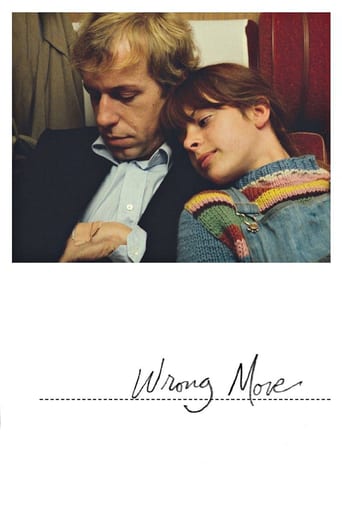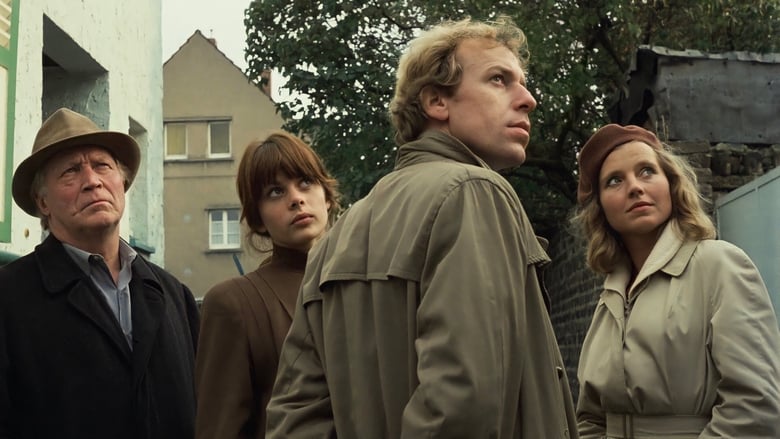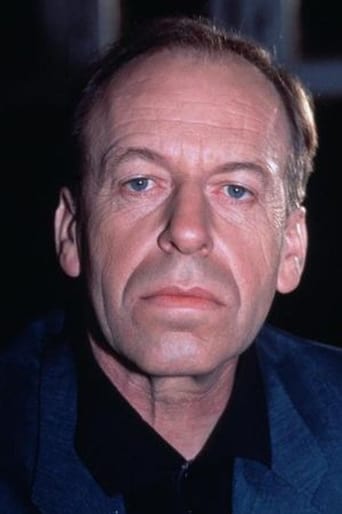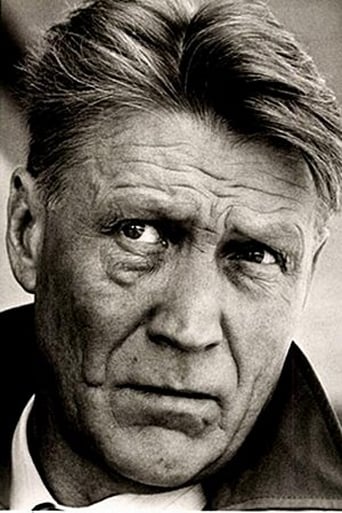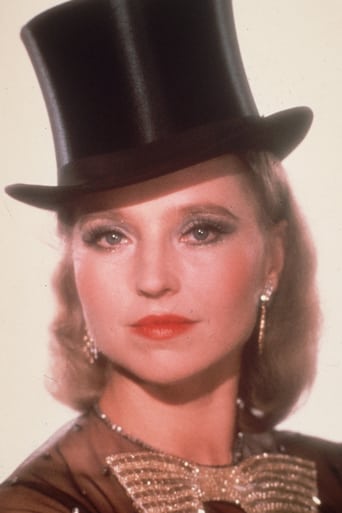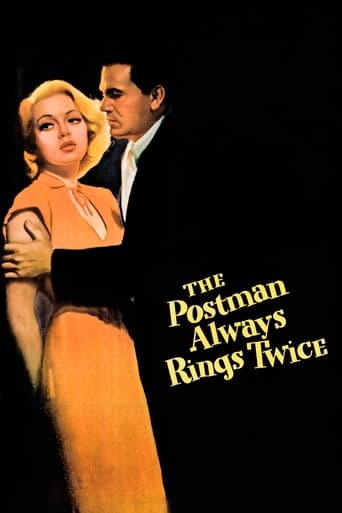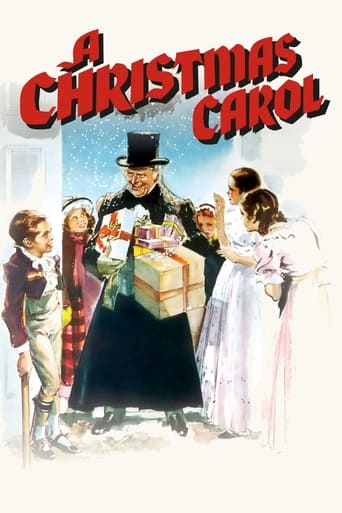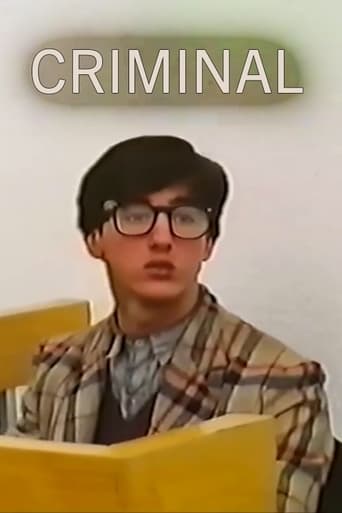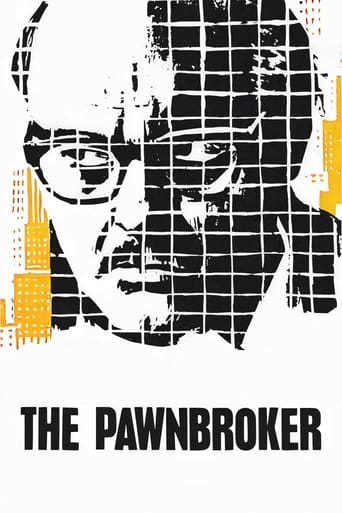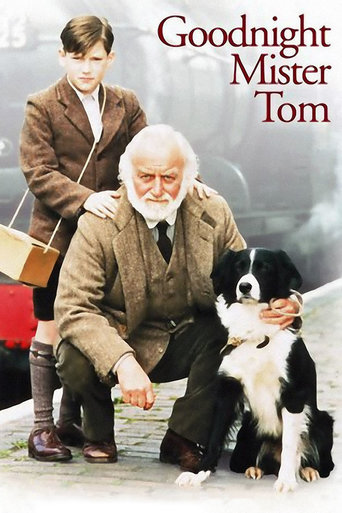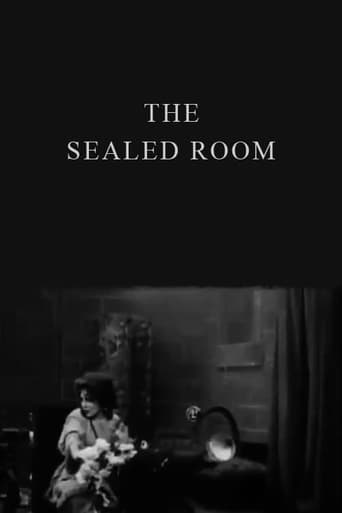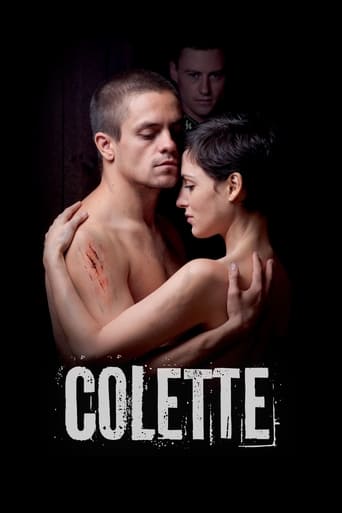Wrong Move (1977)
Six days in the life of Wilhelm: a detached man without qualities. He wants to write, so his mother gives him a ticket to Bonn, telling him to live. On the train he meets an older man, an athlete in the 1936 Olympics, and his mute teen companion, Mignon. She's an acrobat in market squares for spare change.
Watch Trailer
Free Trial Channels
Cast


Similar titles
Reviews
Perfect cast and a good story
One of the best films i have seen
It’s fine. It's literally the definition of a fine movie. You’ve seen it before, you know every beat and outcome before the characters even do. Only question is how much escapism you’re looking for.
what a terribly boring film. I'm sorry but this is absolutely not deserving of best picture and will be forgotten quickly. Entertaining and engaging cinema? No. Nothing performances with flat faces and mistaking silence for subtlety.
Basically the story of a man who finds that six days of travel doesn't broaden his mind. Made on a tiny budget, on a very tight four-week shoot, TWM punches well above its weight. Full of incident and drama, but none of it is related to anything but the general theme of "life is sh*t and then you die" - which you soon get used to; and some of it's actually very funny. A group of six people drift together, then drift apart. All of them are disenfranchised from politics, society and love, and the dialogue is typically Pinteresque: long pauses, non-sequiturs and deep feelings not being expressed, just like real-life dialogue.Thought-provoking and haunting, beautifully filmed and acted,, TWM is a great "mood movie". You may find it frustrating if you're looking for resolution or even logic, but the observations about life and people in general are as true as you'll get. Woody Allen, eat your heart out.
"The Wrong Movement" is the second of three films by Wim Wenders about a disaffected man (in each case played by Rüdiger Vogler) searching for himself out on the open road. Unlike the first (Alice in the Cities) and third (Kings of the Road) films, this one is infinitely less accessible. It's the talkiness that brings it down in the end. Each character seems especially in touch with their own highly specific brand of angst. It's almost too easy to identify with, all the abstract alienation. We all feel it sometimes, but do we actually spend so much time speaking of it? This depiction of dark truth doesn't make it a good story, only an honest one.The actors are good (Nastassja Kinski plays a mute, in her first role), but the characters are cold. The dialogue is impressive, yet bereft of all beauty. On some inherent level, it's apparent that all the characters deeply despise one another. Wilhelm himself testifies at the very start to his dislike of people. Wim Wenders seems to be doing very much the same. Only, this time, it doesn't make for a very good film. Its shorter length is almost a relief.
I've noticed that many reviews about "art films" are written by people who have already decided to like them. This is the only way for me to explain why so many uninspired films are unavoidably hailed as master pieces - maybe it is because of the "artistic patina" that covers them, and Wim Wenders, after all, has got himself a name.For me it's a very simple question: Did I like the film? It doesn't matter who directed it, or anything like it. Well, I THINK didn't like the film. Why? I'll try to answer it."Falsche Bewegung" is based freely on Goethe's "Wilhelm Meisters Lehrjahre" (another reason why "art film" buffs SHOULD like this film). Wilhelm is tired of life and wants to become a writer. He leaves his mother and starts on a self-discovery journey. On the train, he meets an old athlete of the 1936 Berlin Olympic Games and his assistant Mignon, a mute acrobat (lovely Natassja Kinky). During a train stop he sees a woman staring out of a window of another train, Therese (Hanna Schygulla). In a road house they will know an amateur metaphysical poet. And these characters will unite and travel together searching for the meaning of life - reflexions on politics, the meaning of life, love, the need for action, metaphysical poetry... but no emotional links are established among the characters. Maybe it is because this film is seen through Wilhelm's eyes and all he really wants is to write a book.The film floats in emptiness - what moves the characters and makes them stick together remains a mystery - after many deep conversations, melancholy, and nothing else, I was really tired, and I almost decided to call it a day. But I gritted my teeth and watched the film to the end.When the film ends, the group has disbanded, each goes his/her own ways and Wilhelm is left alone brooding that he had made again "the wrong move", because he couldn't establish any emotional links with anyone. Emptiness, grey skies, hopelessness...Now, beware you "art film" buff - if you want to compare Wim Wenders with Antonioni or Bergman, you're on the wrong track. In Antonioni or Bergmans films, there's is loneliness and alienation, all right, but their films portray deep emotional troubles that come from human relationships, while this film, in particular, shows nothing at all, just emptiness followed by empty words. Nothing plus nothing equals nothing.
While it may be cliche to say that The Wrong Move is director Wenders' self-portrait, his sense-of-lost in contemporary Germany will be easily trailed through writer-wannabe protagonist Wilhelm's fruitless journey to encounter and interact with new lover, friend and enemy. Cinematographer Robby Muller, who would be internationally acclaimed a few years later, is on his way, exploring amazing long takes in the conversation-while-walking scene towards the end. European contemporary classical soundtrack sounds appropriate but obsolete.

